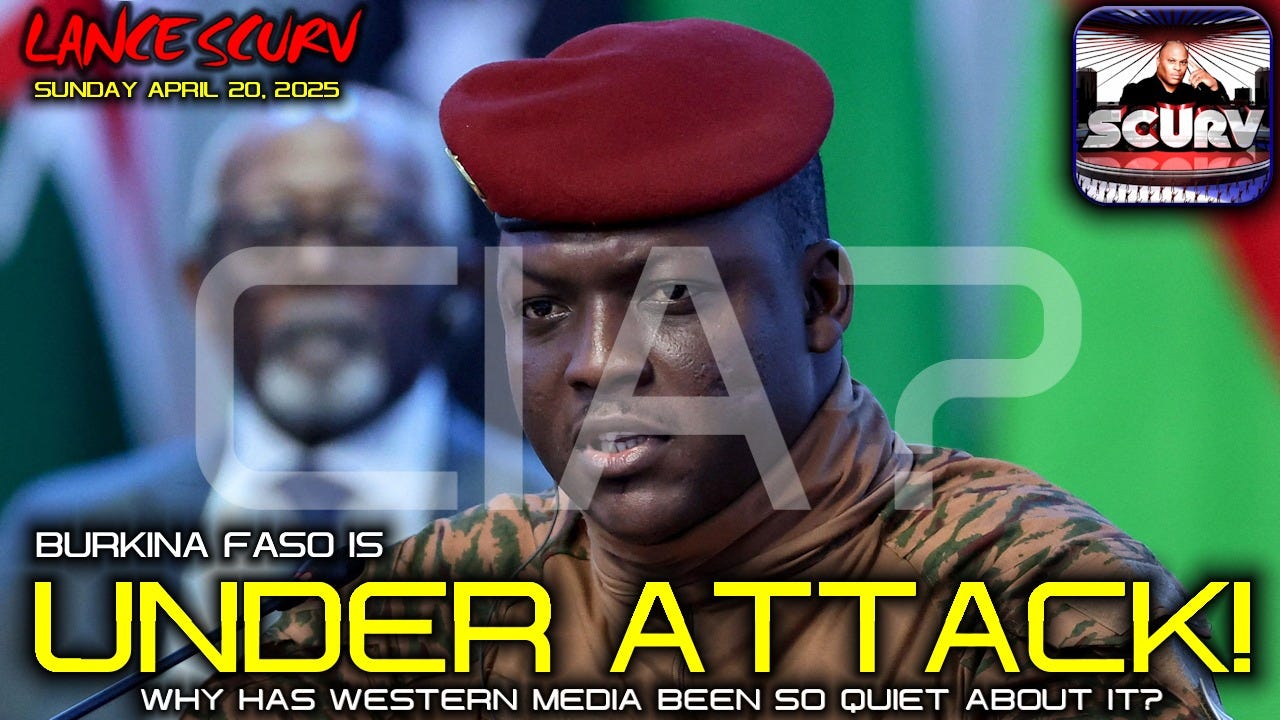IBRAHIM TRAORE UNDER ATTACK! AN ENTIRE VILLAGE UNALIVED!
1. Nationalization of Gold Mines
Burkina Faso nationalized the Boungou and Wahgnion gold mines, previously owned by foreign entities, reclaiming control over valuable resources and signaling a shift towards resource sovereignty.
2. Establishment of a Treasury Depository Bank
The launch of the Treasury Depository Bank in August 2024 aims to enhance financial autonomy by facilitating savings and funding development projects, reducing reliance on external financial institutions.
3. Development of Indigenous Electric Vehicles
Burkina Faso unveiled its first indigenous electric vehicle, the ITAOUIA Native, showcasing advancements in sustainable transportation and technological innovation.
4. Expansion of Solar Energy Infrastructure
Multiple solar power stations, including Zagtouli (33MW), Zina (26.6MW), Nagreongo (30MW), Kodeni (38MW), and Pâ (30MW), have been commissioned to boost renewable energy capacity and reduce dependence on imported energy.
5. Promotion of Local Industrial Development
Initiatives such as the establishment of a tomato processing plant in Bobo-Dioulasso and a factory for locally sourced military uniforms aim to add value to local products and create employment opportunities.
6. Implementation of Popular Shareholding
The government encourages citizen participation in national enterprises through popular shareholding, fostering inclusive economic development and reducing foreign corporate dominance.
7. Agricultural Development Initiatives
The Presidential Initiative for Agriculture targets the cultivation of 14,725 hectares during the 2023-2024 wet season, aiming to produce nearly 190,000 tons of cereals, vegetables, and tubers to enhance food security.
8. Strengthening of Anti-Corruption Measures
Efforts to combat corruption and absenteeism within public administration are underway to improve governance and state transparency.
9. Reclamation of Mining Sector Control
The government has taken steps to manage mining residues through the Golden Hand Factory and establish gold refinery plants, aiming to maximize value from mineral resources and reduce exploitation by foreign entities.
10. Realignment of Foreign Relations
Burkina Faso has distanced itself from former colonial powers and regional blocs, such as France and ECOWAS, seeking to assert greater national sovereignty and explore new international partnerships.
Here are 10 bullet points detailing how France exploited Burkina Faso (and many other Francophone African nations) prior to the leadership of President Ibrahim Traoré (often misreported as Ibrahim Chouiri), and how these practices were unfair and imbalanced, favoring France’s economic and geopolitical interests:
How France Exploited Burkina Faso for Decades:
1. Colonial-Era CFA Franc System
France maintained control over Burkina Faso's currency through the CFA franc, which was tied to the French Treasury. Burkina Faso was required to deposit 50% of its foreign reserves in a French account, allowing France to control monetary policy and profit from African capital.
2. Control of Natural Resources (Gold, Manganese, etc.)
French multinational corporations, like Areva and others, held controlling interests in Burkina Faso’s mines, extracting billions in gold while returning minimal value to the local population in terms of wages, infrastructure, or development.
3. One-Sided Mining Contracts
Contracts were drafted under French legal guidance, often giving 90% or more of the revenue to French companies. Burkina Faso received only token royalties or taxes, leaving it resource-rich but cash-poor.
4. Military Occupation Under the Guise of “Security”
France maintained military bases and presence in the Sahel under Operation Barkhane, claiming to fight terrorism. However, their presence was widely viewed as protecting French corporate interests, not the people.
5. French Multinational Monopolies
French companies dominated Burkina Faso’s telecom, banking, transportation, and utility sectors, often charging high rates and repatriating profits to France, without reinvesting in the country.
6. Import Dumping
France exported subsidized agricultural goods, especially wheat, milk, and poultry, that were cheaper than local produce, undermining local farmers and creating dependency on French imports.
7. Use of “Debt Diplomacy”
France, often via the Francophone Economic Cooperation model, extended loans with conditions that forced privatization of local assets and priority access for French firms, locking Burkina Faso into an endless cycle of debt and dependency.
8. Cultural and Educational Indoctrination
France maintained dominance through Francophonie policies, dictating the education curriculum, language, and cultural narratives—ensuring loyalty to French values while erasing indigenous history and identity.
9. Resource Mapping and Data Control
French geological surveys and data collection were used to map Burkina Faso's mineral wealth, but this information was withheld from local governments and handed directly to French companies for private exploitation.
10. Elitist Puppet Governments
France often supported corrupt or compliant leaders through financial and political backing who would sign away national interests in exchange for personal enrichment—blocking nationalist or pan-Africanist reformers like Ibrahim Traoré.
President Traoré's bold move to reclaim Burkina Faso’s sovereignty, nationalize its wealth, and dismantle French economic domination is what likely made him a target—not just politically, but through destabilizing tactics like externally-funded terror attacks meant to turn the people against him.



